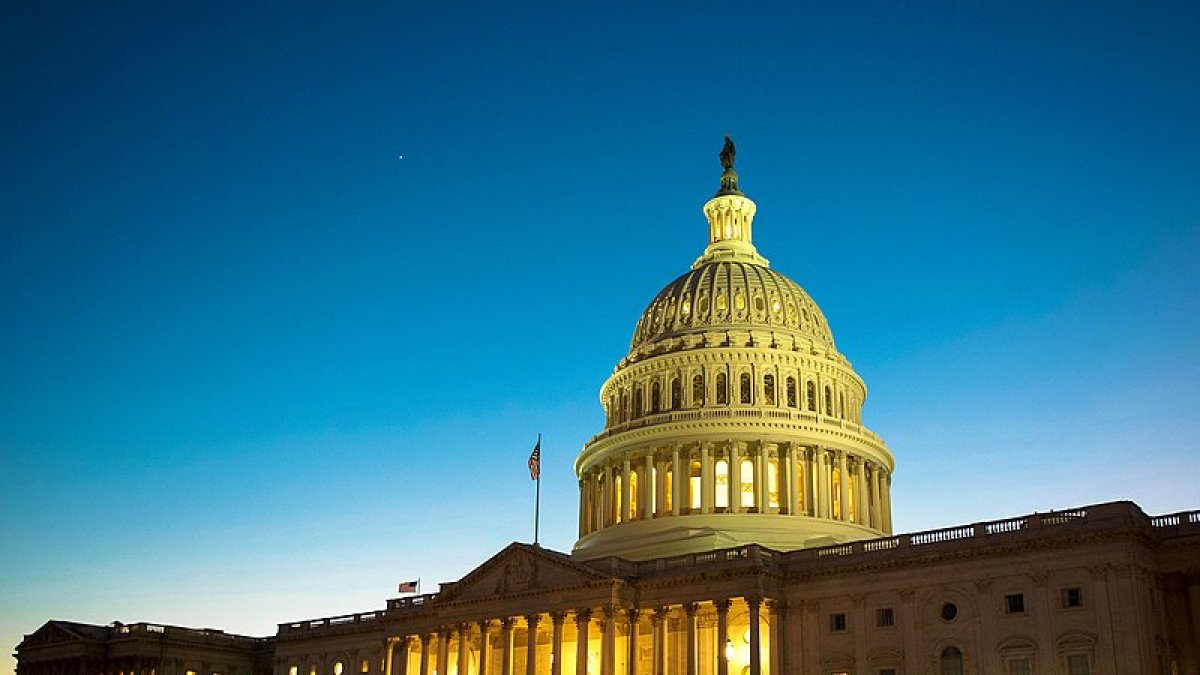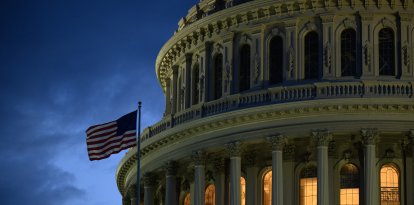Under debate in the Senate, the National Defense Authorization Act has China in its crosshairs
The bill includes an amendment directly targeting LOGINK, a state-owned logistics platform that provides the Asian giant with sensitive information.

Congreso/Wikimedia Commons
The National Defense Authorization Act (NDAA) has passed the and is currently being debated in the Senate, where Democrats and Republicans are negotiating for amendments and changes to the first version of the bill. Within the text is a provision that directly targets LOGINK, a Chinese logistics company that allegedly provided sensitive information to the Chinese Communist Party (CCP).
The author of this provision is Democrat Michelle Steele (D-CA), who openly accuses the company of espionage. He confirmed that he and Tom Cotton (R-AK) wrote a letter to Joe Biden, encouraging him to take steps to demote LOGINK from the international stage, which has not yet been responded to.
"Created in 2007, this Chinese state-owned logistics platform, available free of charge, has gained popularity in recent years. LOGINK is currently being used by 14 of the world's largest ports and partners with multilateral and international organizations, which gives Beijing access to the cargo manifests and transit routes of our commercial and military vessels," the congresswoman wrote in an op-ed column published in The Hill.
"This threat has been ignored for too long. That's why I was proud to vote yes on the House FY 2024 National Defense Authorization Act (NDAA) that not only provides our military with the largest pay raise in 20 years and improves military readiness, but takes steps directly to address the CCP threat to our national security," the Democrat added.
The version of the NDAA that made it to the Senate includes the Communist China's Maritime Data Protection Law which would prevent the Department of Defense from entering into contracts with any port using LOGINK and would compel the Secretary of State to work with US allies to provide alternatives to this platform.
What does the NDAA say?
Specifically, the National Defense Authorization Act would authorize $874.2 billion in national defense spending, including $841.5 billion for the Department of Defense and $32.2 billion for national security programs within the Department of Energy. In addition, it would provide a 5.2% pay increase for the military.
Perhaps the most problematic part of the legislation are the amendments added by House conservatives as part of a deal with the speaker to vote for the bill. However, with the Senate needing to reach the 60-vote threshold, there is every reason to believe that the text will be modified.
The aforementioned Republican amendments would rescind the Pentagon program that reimburses service members who must travel for reproductive health care, would limit access to gender-affirming care for transgender troops. and would put an end to several diversity, equity and inclusion initiatives at the Department of Defense.

























